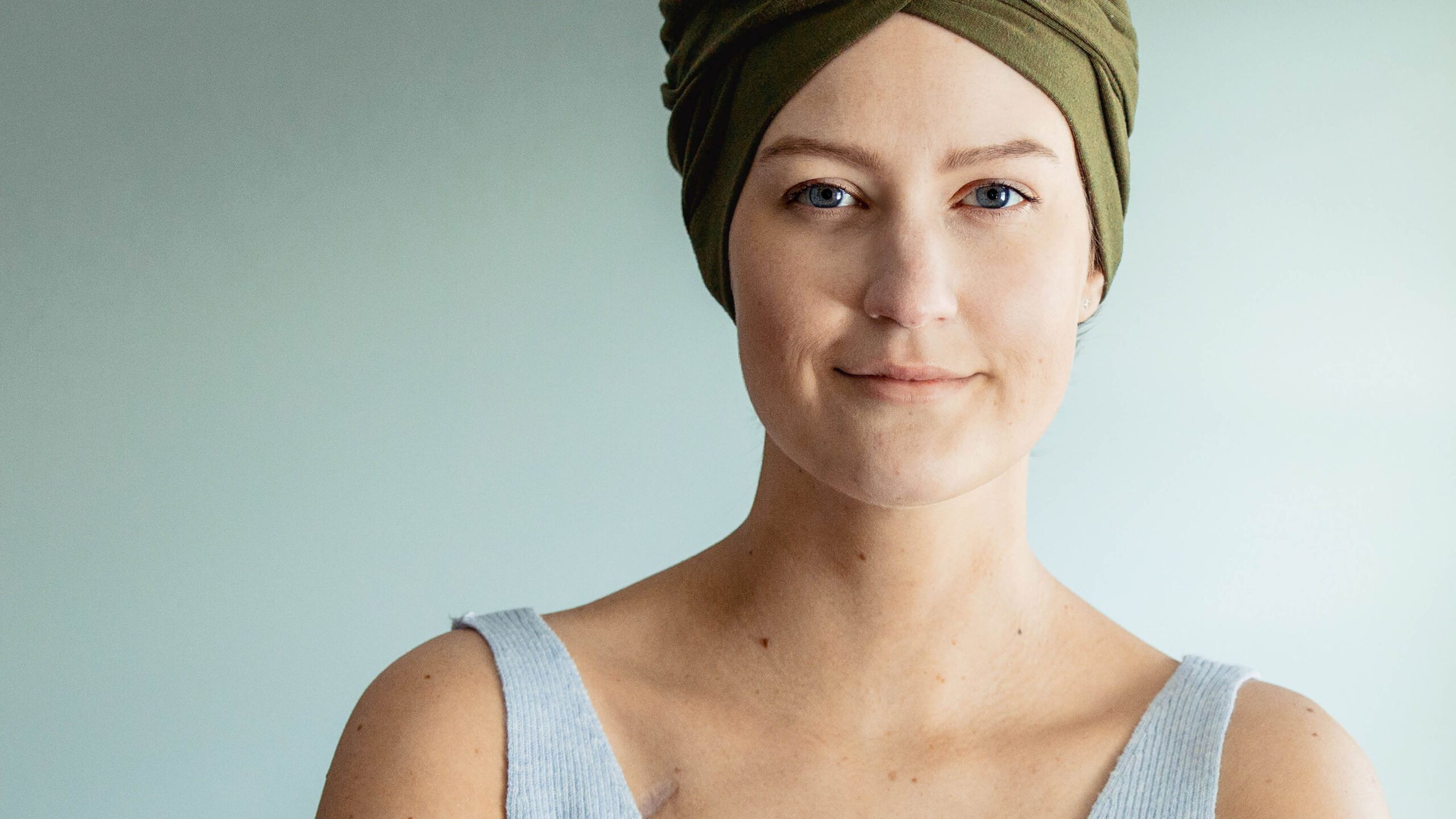Your Feelings During Treatment
As you go through cancer treatment, you’ll have times of feeling confident that you can beat cancer. You’ll feel ready to tackle the physical, emotional and mental challenges that can come with cancer treatment. At other times, you may struggle with the emotional challenges that come with cancer.

There may be times when you have little energy or interest in things that used to be important to you. You’ll feel conflicting emotions about your fight with cancer. Sometimes, you’ll feel unsure about what will happen. There may also be concerns about protecting loved ones. You might attempt to hide some things from them. There can even be times when you feel alone or withdrawn from others.
This is a normal part of living with cancer. Each phase of the cancer journey brings new experiences.
It’s normal to feel emotional and have mood swings during cancer treatment. You may feel peaceful and balanced one day, yet stressed and fearful on another. Strong emotions and reactions might occur when you’re not expecting them. Try to allow yourself to have these feelings without judging them as right or wrong.
The following mix of emotions are common for people beginning treatment:
- Relief about starting to fight cancer.
- Hope about beating cancer.
- Concern about physical changes.
- Worry about whether the treatments will work.
- Sadness about the challenges cancer can bring.
- Anxiety or fear about the future.
- Distress about the changes cancer and treatment might bring to your life.
- Anger about having cancer.
- Uncertainty about the future.
Practice Relaxation Techniques
- One of the easiest methods is called the Relaxation Response. To try it you should sit comfortably, close your eyes and repeat a single word of phrase over and over in your head or aloud. As other thoughts intrude, just tell yourself that you will think about them later.
- Some people meditate by concentrating on a peaceful image or sound. Think of a place you love and try to transport yourself there in your mind.
- Prayer is a common form of meditation. For some people, it is the best way to clear your mind and feel soothed.
- Although most people meditate while sitting or lying still, some people find it easier to combine meditation with movement such as walking, fishing, knitting, or even washing the dishes.
- The idea of meditation is to try to focus in the moment, on a single phrase or image. This may take some practice. At first, you will most likely find yourself thinking about other things while you are trying to meditate. It may take practice to relax and calm your mind.
Loss and Grief
Those on the cancer journey might experience losses. Some may be easy to see and name such as physical changes. Others, like the loss of a sense of control, can be harder to recognize. A loss may be temporary or permanent. A loss can be life-changing or a minor inconvenience.
You might find that people around you don’t seem to recognize your losses or feelings of grief. Some may find it hard to talk about feelings. They might want to help you, but don’t know how. If this happens, remind them that you need the support of having someone listen to you. Let them know that you do not expect them to have answers or to be able to make everything better.
Stress
Everyone feels stressed, worried or tense at some point in their lives—it is a normal part of life for most. However, long periods of persistent, unrelenting stress can cause problems. Although stress will not bring your cancer back, it can affect how well you feel. Feeling overwhelmed can reduce the overall quality of life and lead to other physical and emotional concerns.
Signs of stress:
- Cancer is your first thought every morning and last thought every night.
- You get frightened and upset about minor aches and pains.
- You think that cancer has changed your life too much and you can’t figure out how to manage your life.
- It feels like no one understands—not even loved ones and friends.
Emotional Distress
Stress that is ongoing can become serious emotional distress. Symptoms may include changes in blood pressure, chest pain, headaches, depression or anxiety. If this starts to happen to you, try using some of the methods you have used to deal with difficult times in the past.
You may already know some good ways to cope. Some people use exercise or meditation. Many keep a personal journal to record thoughts, feelings and experiences. Writing about challenges may help you deal with them and reduce stress. As much as possible, focus only on what needs to happen today.
Talk with your health care team about what you are experiencing. A referral to a social worker or licensed counselor may help you to identify steps to lessen stress. Share your feelings with a trusted loved one or friend. If you feel that you have concerns about faith or spiritual issues, a clergyperson or member of a faith-based organization may be able to help.
Many individuals find comfort in talking with others who have gone through a similar experience. Consider asking your health care team to help you find an in-person or online support group of cancer survivors. Keep in mind that each support group is different. You may have to try a few of them to find the one that best meets your needs.
Ways to Relieve Stress
- Walk around your neighborhood or a park.
- Get a massage.
- Practice breathing and relaxation techniques such as guided imagery, progressive muscle relaxation and meditation.
- Practice yoga or tai chi.
- Talk to friends and family.
- Talk with a professional therapist.
- Attend a support group.
- Make time for hobbies and things you enjoy.
- Ask for help with daily activities such as housework, errands and cooking.
- Pray or meditate.
- Write in a journal.
- Listen to music.
- Read.
- Watch your favorite TV show or movie.
- Find ways to sleep better.
- Learn to say “no” to things you that you do not want to do or have to do.
- Take time for a few quiet and calming moments every day.
Ways to Sleep Better
- Read a good book
- Watch a television program you enjoy
- Listen to soothing music
- Practice yoga
- Have a cup of herbal tea
- Take a warm bath
- Try a white noise machine to block out street noise and provide soothing background sounds
- Learn a few simple relaxation exercises that you can do in bed
- Breathing exercises
Serious Emotional Reactions
Some emotional reactions can be overwhelming. If you think that stress has become emotional distress, seek the help of your medical team right away. This is especially true if you think about hurting yourself or someone else. Contact your physician, nurse or social worker and tell them how you are feeling. A loved one, caregiver or friend may be able to give you emotional support until you can get medical help.
There can be different reasons for some emotions such as depression or anxiety. For example, certain medications can cause depression or suicidal thoughts in some people. If this could be happening to you, contact your health care provider and pharmacist immediately.
In some cases, there may be a need to change your medication. You may also need the support of a counselor. If you cannot reach your health care provider, call 911 or go to a hospital emergency room. It is important to treat serious emotional distress as quickly as possible.
Finding Support
An important part of healing is finding the support you need. Many patients and caregivers find comfort in talking with others who are familiar with the cancer journey. Support can come from loved ones, friends and professionals. There are many cancer support resources to assist you. You do not have to deal with cancer alone.
Support often comes from members of the health care team such as an oncology social worker or a patient navigator. Your health care provider might suggest a support group for you or your loved ones. Support groups can allow people who are affected by cancer to share common experiences. These groups also provide a chance to learn new ways to deal with problems. Some cancer programs offer support groups for cancer survivors and their loved ones right in the clinic or hospital. There are also support groups for caregivers.
Nonprofit cancer organizations offer many types of support. Livestrong Cancer Navigation Services can refer you to the right local and national resources including support groups and peer-to-peer support.
Questions to Ask Your Health Care Team
- Ask members of your health care team to help you find a counselor or support group.
- How can I talk with my loved ones about what I am feeling?
- Can my cancer treatment contribute to emotional side effects?
- How can I find other cancer survivors to talk with?
- What can be done to help me feel more balanced emotionally?
- What can be done to treat the symptoms I am experiencing?
- Who can help me deal with my feelings?

